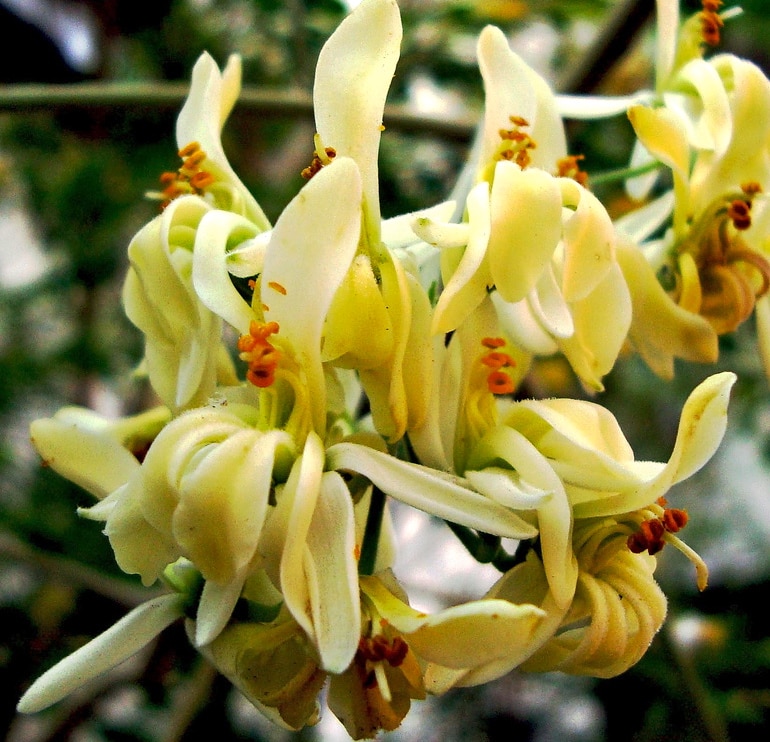Moringa has been called “the miracle tree,” but does it live up to all of the hype?
Moringa Nutrition Facts
Supposedly, moringa contains:
- 10 times the vitamin A of carrots
- 12 times the vitamin C of oranges
- 17 times more calcium than milk
- 15 times more potassium than bananas
- 25 times more iron than spinach
- 9 times more protein than yogurt.
Even if all this were true, this is for 100 grams of dry moringa leaf (almost a whole cup of leaf powder). Researchers have had trouble getting people to even eat 20 grams due to its taste.
If you go to the USDA nutrient database, and enter a more doable dose, about one tablespoon, a serving of moringa powder has:
- as much vitamin A as a quarter of one baby carrot
- as much vitamin C as one one-hundredth of an orange
- the calcium of half a cup of milk
- the potassium of a quarter of one banana
- the iron of a quarter cup of spinach
- the protein of a third of a container of yogurt.
So it may be nutritious, but not off the charts, and certainly not what’s commonly touted. Check out my video The Benefits of Moringa: Is It The Most Nutritious Food?
What Are The Health Benefits Of Moringa?
Antioxidants
Researchers were testing the effects of a tablespoon of moringa leaf powder once a day for three months on antioxidant status, and saw a drop in oxidative stress, as one might expect from eating any healthy plant food.
Cancer
It seems to have anticancer activity—in a petri dish—against cell lines of breast cancer, lung cancer, skin cancer, and fibrosarcoma, while tending to leave normal cells relatively alone, But there haven’t been any clinical studies.
Lower Blood Sugar Levels
There are a few studies showing the potential of moringa’s efficacy on blood sugar levels, but most fail to show benefit.
What Are The Moringa Side Effects?
Pregnancy
Moringa use is probably not advised during pregnancy, as about 80 percent of “women folk” in some areas of the world use it to abort pregnancies, and its effectiveness for that purpose has been confirmed, at least in rats.
Stevens-Johnson Syndrome
Individuals who are at risk of developing Stevens-Johnson (probably the most dreaded drug side effect) are advised to not consume moringa due to a case of a man breaking out after fourteen hours after consuming it.
Conclusion
My take on moringa is that the evidence of benefit wasn’t compelling enough to justify shopping online for something special when you can get healthy vegetables in your local market like broccoli, which has no side effects.
